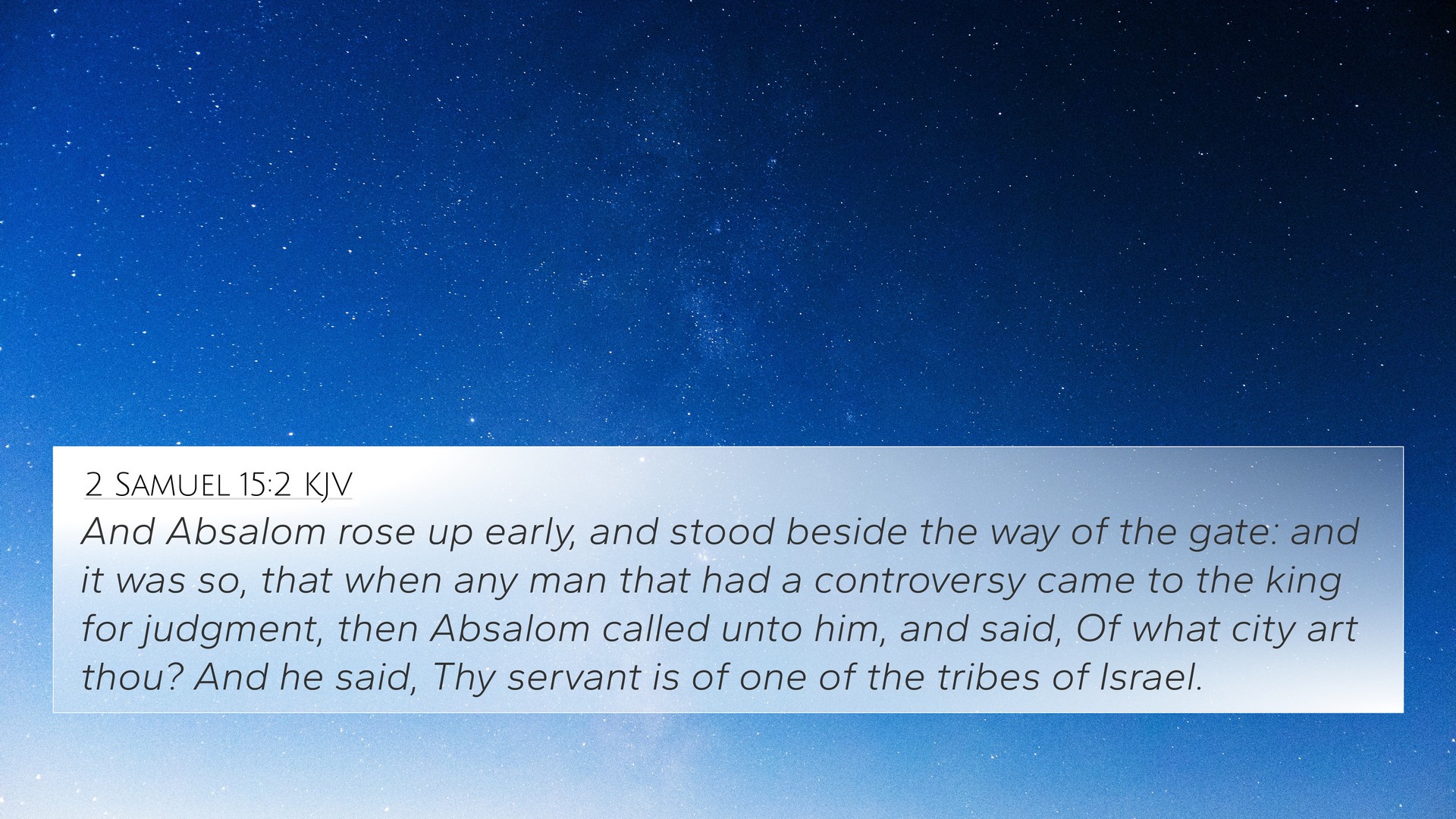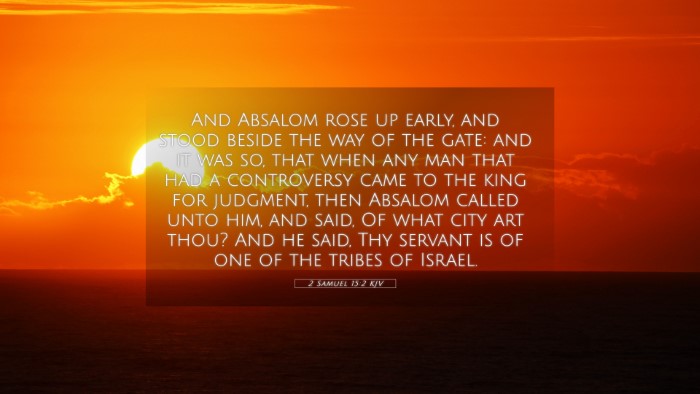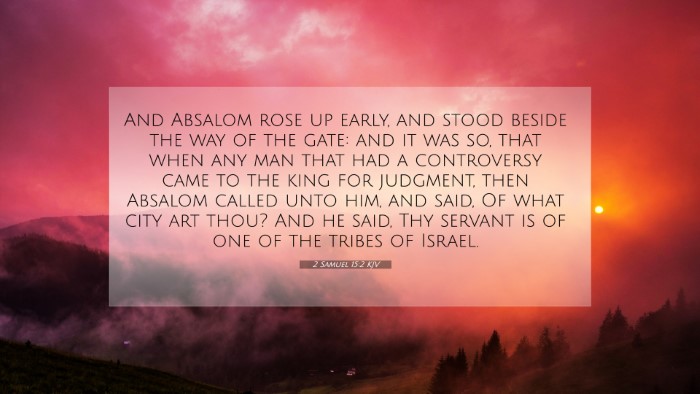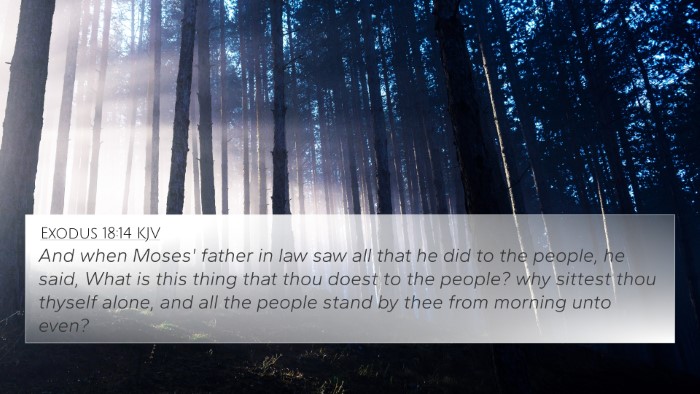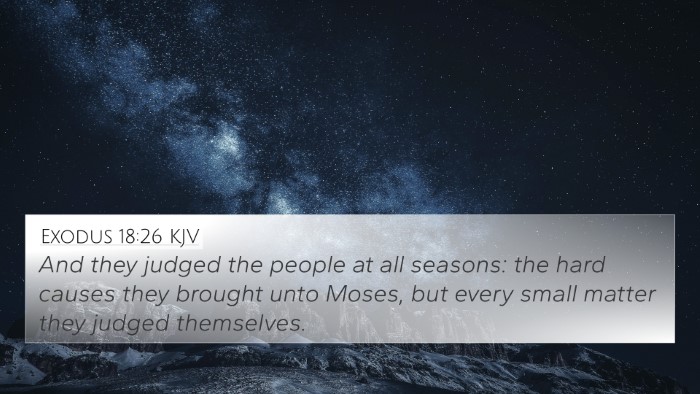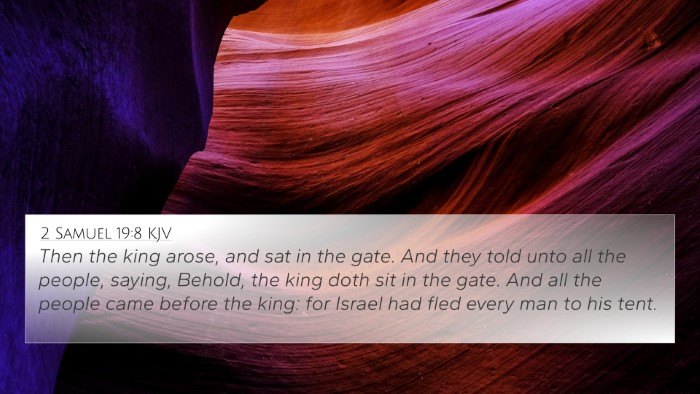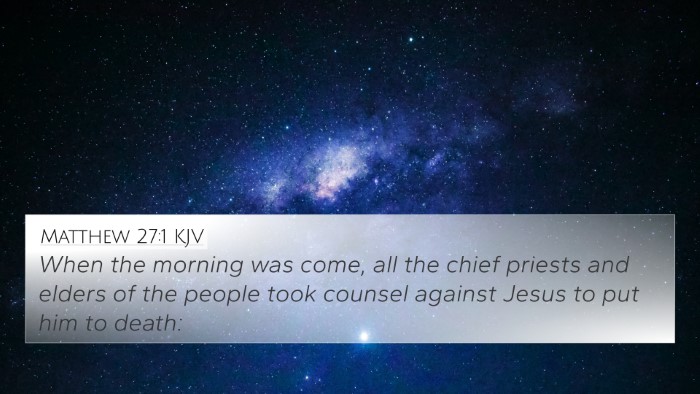Understanding 2 Samuel 15:2
Verse: "And Absalom rose up early, and stood beside the way of the gate: and it was so, that when any man that had a controversy came to the king for judgment, then Absalom called unto him, and said, Of what city art thou? And he said, Thy servant is of one of the tribes of Israel." (2 Samuel 15:2)
Summary of 2 Samuel 15:2
This verse highlights Absalom's early morning routine at the city gate, acting as a listener and gatekeeper to those seeking justice from King David. His actions are cunning, aiming to sway the hearts of the people away from David to himself.
Commentary Insights
-
Matthew Henry notes that Absalom's placement at the gate was a strategic decision to gain favor with the people. By inquiring about their towns and families, he created a sense of personal connection, which was a deceptive means of usurping loyalty.
-
Albert Barnes points out that Absalom’s behavior illustrates a broader theme of ambition and manipulation. His motives were self-serving, as he positioned himself as a champion of the people's rights, contrasting this with David, who was preoccupied with state affairs.
-
Adam Clarke elaborates on the implications of Absalom's actions and the significance of the city gate as a place of justice. This setting underscores the political maneuvering that was commonplace in ancient Israel, where power dynamics often shifted based on public perception.
Thematic Analysis
In studying this verse, we observe key themes such as:
- Ambition and Power: Absalom embodies the dangerous pursuit of political power, often at the expense of loyalty and integrity.
- Judgment and Justice: Absalom's interaction with those seeking judgment illustrates the human desire for a fair hearing and the vulnerabilities that can arise in leadership.
- Deception: The cunning nature of Absalom’s strategy shows that sometimes appearances can be misleading, prompting reflections on sincerity and truthfulness in leadership.
Bible Cross References
This verse is enriched by connections with various other scriptures. Below are pertinent cross-references that relate to themes found in 2 Samuel 15:2:
- 2 Samuel 14:30-32 - Absalom's previous attempts to gain audience and his desire to be among the people.
- 1 Samuel 8:5 - The Israelites requesting a king to judge them, reflecting the longing for leadership that meets their needs.
- 1 Kings 1:5 - A parallel account of another son of David attempting to claim the throne, similar to Absalom's actions.
- Proverbs 29:12 - Commentary on leadership, emphasizing the potential corruption of leaders who don’t seek righteousness.
- Matthew 20:25-28 - Jesus’ teachings on servanthood in leadership, contrasting with Absalom's approach.
- Acts 20:28 - A call for leaders to shepherd the flock, highlighting the responsibilities of leadership.
- Isaiah 14:12-15 - A description of pride and ambition that leads to downfall, paralleling Absalom's ambition.
Connections Between Bible Verses
2 Samuel 15:2 can be studied within a broader framework by linking it to other verses demonstrating themes of ambition, justice, and leadership. This creates a rich tapestry for understanding the complexities of biblical narratives and characters:
- Genesis 3:1-6 - The serpent's manipulation of Eve parallels Absalom’s deceptive tactics.
- Luke 22:24 - The disciples displaying ambition rather than servanthood becomes a reflective lesson on Absalom's choices.
Conclusion
In conclusion, 2 Samuel 15:2 introduces us to a pivotal moment in the narrative of Absalom's rebellion, showcasing themes that resonate throughout the Scriptures. It serves as an invaluable study for anyone aiming to explore the dynamics of leadership, ambition, and justice in the biblical context.
Further Study
To fully grasp the intricacies of 2 Samuel 15:2, one may consider utilizing various tools for Bible cross-referencing, such as:
- Bible concordances that provide thematic and contextual backgrounds.
- Cross-reference guides aimed at deepening understanding through interrelated verses.
- Comprehensive Bible study aids focusing on connections between Old and New Testament themes.
FAQs on Bible Cross-Referencing
- How to find cross-references in the Bible? Use a concordance or online tools designed for cross-referencing.
- What can I learn from comparing Bible verses? Insights on consistent themes, character behaviors, and God’s plan throughout scripture.
- How do specific verses connect? By analyzing context, historical background and thematic parallels across scriptures.
